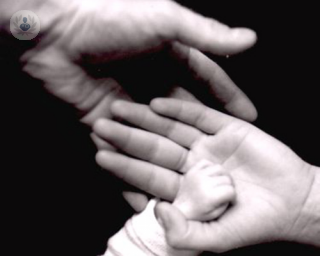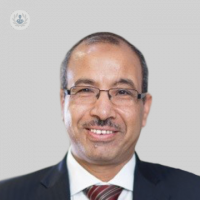Assisted reproductive technology
Professor Nazar Amso - Obstetrics & gynaecology
Created on: 11-13-2012
Updated on: 08-16-2023
Edited by: Carlota Pano
What is assisted reproductive technology (ART)?
Assisted reproductive technology (ART) aims to help women that want to become pregnant who may have had some difficulties in doing so through sexual intercourse alone. Some of these techniques include artificial insemination or in vitro fertilisation (IVF). There are a variety of treatments, but it depends on the individual circumstances of the patient.

What causes fertility problems?
Both a man and a woman's fertility gradually decline as they grow older.
In men, fertility issues may occur because of low numbers or low quality of sperm.
A woman may have fertility problems because her ovaries do not produce enough eggs regularly or because the fallopian tubes are damaged or blocked so the sperm cannot reach her eggs.
There is such a term as unexplained infertility because, in some people, no reason can be found for their infertility.
What are the options for assisted reproductive technology?
The different ART methods available include:
- Intrauterine insemination (IUI): This is a type of artificial insemination where the sperm is inserted into the womb. It is usually required as a method if a couple finds it difficult to have sexual intercourse because of a disability or if they are in a same-sex relationship.
- In vitro fertilisation (IVF): One of the main methods used to help people conceive, where the ovaries are stimulated, the eggs are fertilised outside of the woman's body, and one or two embryos are placed inside the womb.
- IVF with intracytoplasmic sperm injection (ICSI): In some men, their sperm is incapable of fertilising eggs in the normal way, and with this procedure, a single sperm is injected directly into the egg.
- Sperm donor insemination or egg donation: This involves using sperm donated from another man or using an egg from another woman.
These methods are regulated by law and their use is controlled by the Human Fertilisation and Embryology Authorisation (HFEA).
What should I do if I am concerned about my fertility?
If you are concerned about your fertility, you should first visit your GP to discuss your lifestyle and medical history. Your doctor will ask how long you have been trying to get pregnant and will ask about your sexual history.
If you have been trying to get pregnant for over one year with your partner, both will be offered tests. Depending on your results, your doctor may refer you to a fertility specialist.











